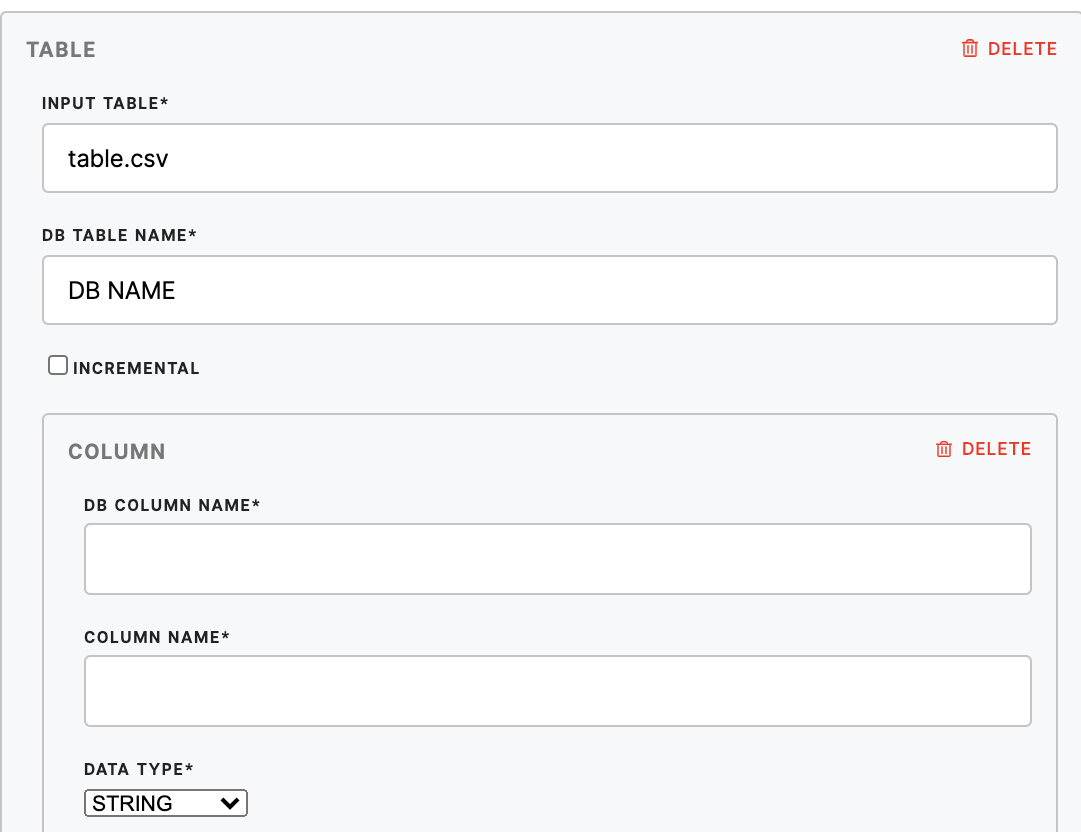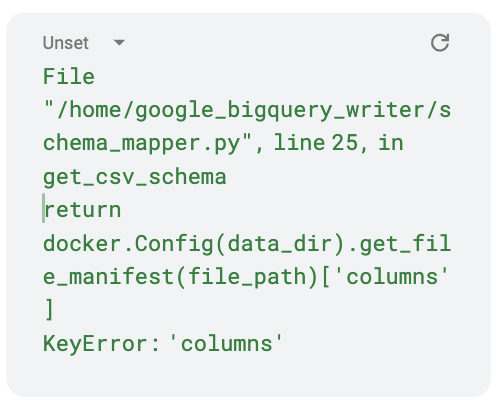Loader Google BigQuery
Google BigQuery is a prominent platform in the data analytics and storage domain, offering businesses a robust solution for managing and analyzing large datasets. With an emphasis on practical data processing, Google BigQuery enables businesses to efficiently handle vast amounts of data, supporting informed decision-making and analysis.
Business Value in CFP
Integrating CDP and BigQuery allows businesses to leverage their customer data effectively, facilitating seamless data transfer and analysis. By utilizing Google BigQuery within a CDP ecosystem, businesses can optimize their data management processes and gain valuable insights without relying on complex marketing language.
Setting up the loader in MI
For setting BigQuery as a destination within Meiro Integration, use the Google BigQuery loader enables to load of the data from Meiro Integrations to Google Big Query. component.
Data In/Data Out
| Data In | Upload all files into /data/in/files |
| Data Out | N/A |
Learn more: about the folder structure here.
Parameters
All parameters are set on Google:
| Project (required) | Google project name. |
| Dataset (required) | Google dataset. |
Learn more: Datasets are top-level containers that are used to organize and control access to your tables and views. Learn more about datasets here.
Table
| Input Table (required) | Name of the table you want to load to the database. |
| DB Table Name (required) | Database table name. |
| Incremental | Signifies if you want to load the data by overwriting whatever is in the database or incrementally. |
| DB Column Name (required) | Database column name. |
| Column Name (required) | The name of the column in the input table you want to load to the database. |
| Data Type (required) | The data type can be string, int64, float64, boolean or timestamp. |
FAQ
|
My loading did not complete, with the following error message. How do I fix it?
|
The loader requires a manifest file with the Create a manifest file based on the code template below. Remember to change the file names, destination names, and fields accordingly based on the CSV that you are trying to load: |



